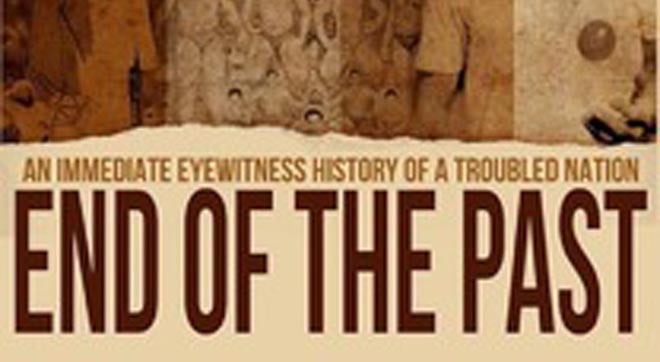
A political and cultural document that helps understand the circumstances before and after Zia’s martial law whose legacy we are still grappling with

The past might have vanished but we are still reeling under the gigantic tremors left in its wake, and these continue to jeopardise our collective life. The past has fully spread its tentacles and it seems that there is no escape. Whatever the circumstances, countries achieve a turnaround if they start learning from history instead of relegating it to the dustbin.
Nadeem Farooq Paracha, a journalist, popular columnist, political activist and cultural critic, allows us to have a peep into the days when he along with his comrades fought pitched battles with the state-sponsored right-wing elements during the Ziaul Haq era. End of the Past is essentially a political and cultural document that will help you understand the circumstances before the arrival of Zia’s martial law whose legacy we are grappling with till now.
Paracha’s father belonged to Attock where his clan conducted business. A political soul from day one, his father naturally drifted towards leftist politics by joining the National Students Federation (NSF). Later, he joined the Pakistan People’s Party (PPP) and thus became a close associate of Zulfikar Ali Bhutto (ZAB).
Paracha was lucky as his parents were liberal and secular and they gave him complete freedom to live life the way he wanted to. He, too, joined student politics and faced the state-sponsored onslaught of the student wing of Jamaat-e-Islami (IJT) who brought guns onto campus to muzzle the voice of their opponents. Paracha joined People’s Students Federation (PSF), the student wing of PPP, and closely saw how Zia used the name of Islam to propagate a puritanical and hardliner version of the religion.
In the eight-chapter book, Paracha reminisces about the days in which his generation had to face the ugly Zia regime. He narrates the days before the arrival of Zia when populist Bhutto was at the helm of affairs. The atmosphere was relaxed with plenty of space for the youth to enjoy themselves or party at night clubs. With the easy availability of liquor in Karachi, Paracha rightly mentions how the meager number of drug addicts could be counted on our fingers. Cases of drug trafficking were rare to find.
But once Zia was in the saddle, state-backed jihadists were launched to defeat the Russians and gates were opened for the ‘warriors’ and ‘jihadis’ from all climes. Thus there emerged a new rich class in Karachi which hugely benefited from drug trafficking and also started going to pilgrimage each year. Paracha points out how this nouveau rich class crassly exhibited their religious views. He also narrates how his own family and a few of his cousins were beholden to the Tableeghi Jamaat ideology and became their staunch recruits.
Being a film and pop music critic, Paracha writes with authority about the downward slide of our film industry. A chapter is devoted to the gradual decline of the quality of films over the years.
The ‘Men in Green’ are also dealt with by the incisive Nadeem Paracha in a detailed chapter in which he removes the lid over many episodes of ideological clashes among the team. Players like Inzamamul Haq and Saeed Anwar drifted towards the Tableeghi Jamaat and started exhibiting religiosity instead of keeping it a private affair.
The performance of the cricket team was dismal to say the least, notes Paracha, as the team members started exerting their energies on such petty issues. He mentions Qasim Umar who fell out with Imran Khan due to the latter’s harsh attitude. Umar gave the cricket fracas a new twist by labelling Khan and other players as ‘womanisers’, thus converting the administrative issue into a moral one. No wonder Umar later joined the Tableeghi Jamaat in the 1990s, Paracha claims.
As I have mentioned earlier, in the book the writer has shared snapshots from his memory: his days as a leftist student at the university and various episodes from his own life. Here we learn how Paracha landed in the office of MAG one day and started his career in journalism. There was no going back as he later moved to The News where he won many plaudits as an outstanding reporter.
Credit must be given to Paracha who has duly pointed out the blunders of ZAB despite being his admirer. Thus, he has maintained a fine balance as a perceptive political commentator. End of the Past is a must read for all those who want to understand what went wrong with Pakistan over the years. Paracha should be praised for writing such a witty and insightful book.